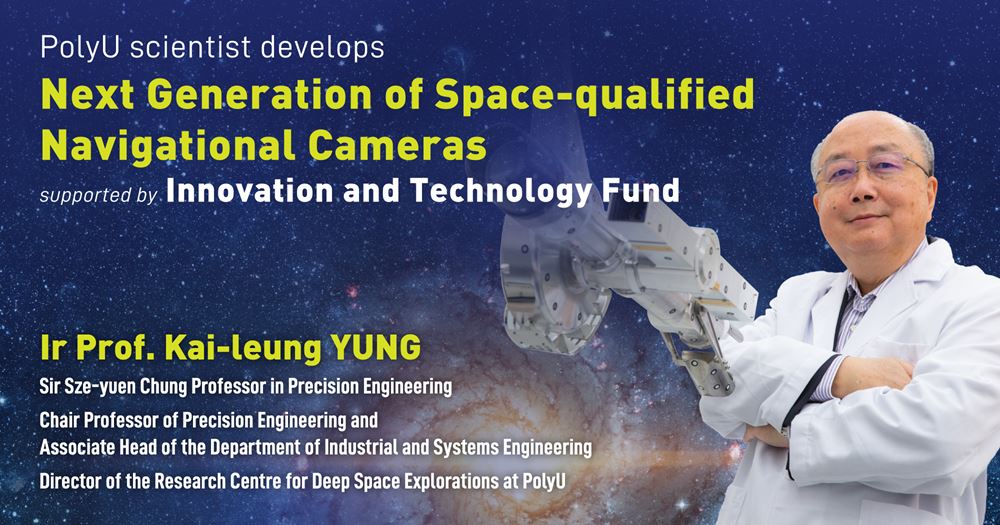The Hong Kong Polytechnic University (PolyU) has a strong research track record in space technology, with its researchers involved in several national and international space exploration projects. A PolyU project has recently been awarded the Innovation and Technology Fund under the Innovation and Technology Support Programme (ITSP) for key space technology capability research and development with application in terrain cameras.
Led by Ir Prof. Kai-leung Yung, Sir Sze-yuen Chung Professor in Precision Engineering, Chair Professor of Precision Engineering and Associate Head of the Department of Industrial and Systems Engineering, and Director of the Research Centre for Deep Space Explorations at PolyU, the project “Key space technology capability research and development with application to terrain cameras” has received a grant of HK$32 million by the Innovation and Technology Fund.
The project aims to advance PolyU's contributions to the nation's future space missions, building on the university's past successes with the Chang’e-3, 4, 5, 6, and Tianwen-1 missions. This research focuses on developing next-generation space-qualified navigational cameras designed for future deep space missions.
Prof. YUNG and his team will tackle several technological challenges, including the development of new materials and processes that offer high strength-to-weight ratios, high thermal conductivity, and controllable optical properties such as absorptivity, reflectivity, emissivity, and refractivity. The project will also address space weather mitigation characteristics, including radiation resistance and chemical compatibility in the space environment, as well as manufacturability factors like void-free 3D printing.
Additionally, the research will explore key technologies related to image capturing and processing, including thermal modelling to maintain neutral optical performance under extreme temperature fluctuations, and artificial intelligence (AI) algorithms for terrain identification and navigation on the lunar surface under varying sunlight conditions.
Prof. YUNG expressed his gratitude for the support and said, "This encourages us to continue pushing the boundaries of space technology for the advancement of aerospace science. It is anticipated that the key technologies can be demonstrated through new camera designs, ready to support the nation's future missions.”
ITF, administered by the Innovation and Technology Commission (ITC), aims to increase the added value, productivity and competitiveness of economic activities. ITSP was introduced to encourage universities funded by the University Grants Committee to collaborate with leading research institutes worldwide to conduct more theme-based interdisciplinary and translational R&D work in focused technology areas.



